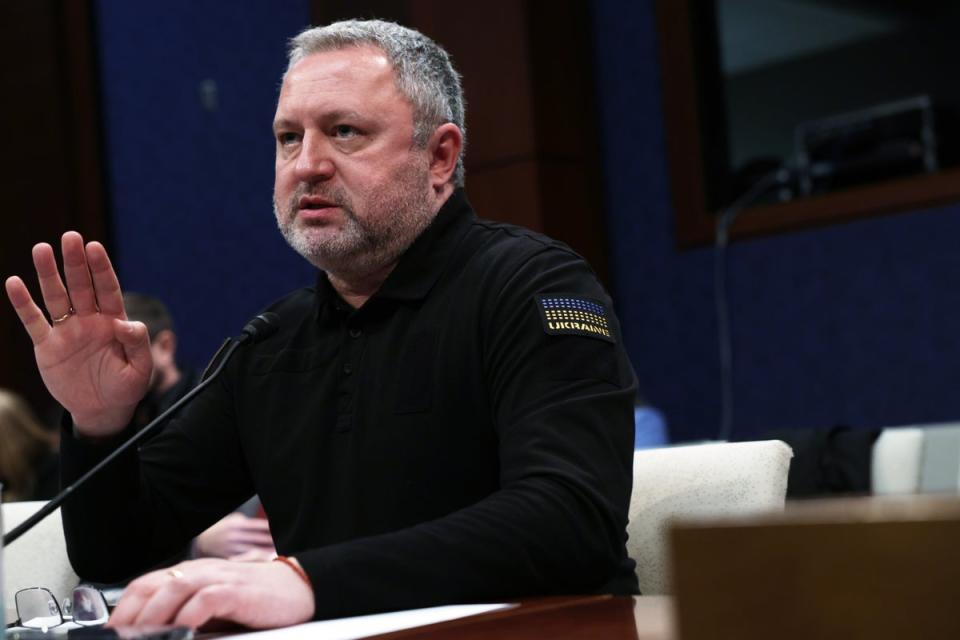Ukraine’s Prosecutor General, Andriy Kostin, announced his resignation on Tuesday following a growing scandal involving dozens of officials accused of using their positions to falsely obtain disability status and avoid military service. Kostin’s resignation came after a meeting of Ukraine’s National Security and Defense Council, where officials discussed measures to combat corruption and prevent abuses in the country’s military draft system, especially in light of the ongoing war with Russia.
The scandal, which has rocked Ukraine’s justice system, centers on allegations that prosecutors and other officials, including those in local administrations, manipulated the disability status system to evade conscription. These revelations have prompted public outrage, further intensifying scrutiny of the government’s handling of corruption as the country remains at war with Russia.
In his resignation statement, Kostin acknowledged the gravity of the situation and the need for political accountability. He described the abuse of disability status as “clearly amoral,” aligning himself with the position of President Volodymyr Zelenskiy, who earlier issued a strongly worded statement demanding responsibility from senior officials.
“The Prosecutor General must take political responsibility for the situation in the prosecution bodies of Ukraine,” Zelenskiy said in his statement, adding that reforms to the disability assessment system must be prioritized to close loopholes that allow draft dodgers to evade service. Kostin echoed these sentiments, saying, “In this situation, I believe it is right to announce my resignation from the position of Prosecutor General.”
Although Kostin’s resignation was a direct response to the scandal, it remains unclear how this will impact Ukraine’s broader legal and diplomatic efforts to hold Russia accountable for war crimes during the ongoing invasion. Ukraine, along with international allies and the International Criminal Court (ICC), has accused Moscow of numerous war crimes, and Kostin’s office has played a central role in these investigations.
The scandal came to light when a Ukrainian journalist published a report last week claiming that 50 prosecutors in the western region of Khmelnytskyi had been fraudulently registered as disabled. In response, Kostin launched an internal investigation, which revealed that the number was even higher than initially reported. According to Kostin, 61 prosecutors in Khmelnytskyi had been registered as disabled, with 50 of them obtaining that status before Russia’s full-scale invasion in 2022.
“It is very important to establish why they were granted disability status, because the share of such employees in Khmelnytskyi region is very high,” Kostin said during the investigation.
Beyond the prosecutors, Zelenskiy indicated that similar abuses had been uncovered across various sectors, including customs, tax authorities, local administrations, and the Pension Fund system. “There are hundreds of cases of obviously unjustified disability statuses among customs and tax officials, in the Pension Fund system, and in local administrations,” Zelenskiy said in his nightly address. He vowed that “all this must be dealt with carefully and promptly.”
Following the scandal, President Zelenskiy has ordered urgent reforms to Ukraine’s disability assessment system. According to an executive order published on the president’s website, medical commissions responsible for granting disability status will be dissolved by the end of 2024. A newly established working group will review all decisions made by these commissions within the next three months to identify abuses and prevent further manipulation of the system.
The Ukrainian Security Service (SBU) has also been involved in the crackdown on this corruption. According to the SBU, 64 members of medical commissions have been named as suspects in ongoing criminal investigations, with nine already found guilty of illegally granting disability status. These developments are part of a broader effort to address systemic corruption in Ukraine as the government seeks to bolster national unity and ensure that all eligible citizens contribute to the war effort.
Kostin’s resignation still requires formal approval by Ukraine’s parliament, where Zelenskiy’s party holds a majority. Given the president’s public call for responsibility and reform, it is widely expected that the legislature will approve Kostin’s departure. The political fallout from this scandal could be significant, especially as Ukraine continues to grapple with both domestic challenges and the immense pressure of the war with Russia.
The scandal has also sparked widespread public anger, with many Ukrainians criticizing the perceived privileges and abuses of power by officials at a time when many ordinary citizens are making significant sacrifices. The revelations of draft evasion through fraudulent disability claims have only deepened the sense of injustice.
As Kostin steps down, Ukraine faces the dual challenge of cleaning up its internal corruption while maintaining its focus on the war and its legal efforts to prosecute Russian war crimes. While the impact of Kostin’s resignation on these broader efforts remains uncertain, his departure underscores the need for transparency and accountability as Ukraine continues to navigate a period of immense national and international pressure.
Next Steps
With Kostin’s resignation, Ukraine’s parliament will need to approve his successor and ensure the continuation of reforms aimed at tightening the disability assessment system and cracking down on corruption. The government’s ability to swiftly address these issues is critical not only for domestic morale but also for maintaining international confidence and support, particularly from key allies aiding Ukraine in its defense against Russia.
The future of Ukraine’s fight against internal corruption, and its legal pursuit of justice for war crimes committed by Russian forces, now rests in the hands of Kostin’s eventual successor and the reforms set in motion by the current administration. The eyes of the Ukrainian public and the international community will be closely watching how these issues are addressed in the weeks and months ahead.



